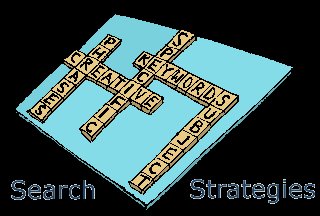Reflections on the Information Literacy and Ethics Toolkit

"E- Pathfinder -- Information Literacy & Ethics Toolkit: Information Literacy and Ethics Resources for Middle and High School Students and Teachers"
The scope of this E-pathfinder summarizes the basic content. The E-pathfinder is sub-divided into 15 alphabetized categories related to topics covering various aspects of information literacy and information ethics for the purpose of constructively guiding and instructing middle and high school students and teachers in the development of information literacy knowledge and skills.
The E-Pathfinder is designed to provide subject-based guides to resources on information literacy and information ethics. The E-Pathfinder resources include brief annotations, which are intended to inform teachers, to guide instruction, and to be used by middle and high school students. The E-Pathfinder topics include: academic honesty, assessment criteria, computer ethics, copyright and fair use, ethical codes, evaluation of information resources, information literacy standards, intellectual freedom and intellectual property, Internet research, the research process, piracy, social responsibility, and the responsible use of electronic communication tools. The E-Pathfinder is intended to guide teachers and secondary students to web-based tools that can be used to actively support critical thinking and the learning process across content areas, while engaging students in the constructive development of information literacy knowledge and skills.
Three web-based resources have exceptional potential as teaching and learning tools. These resources each build skills and understanding through active, constructive engagement in the learning process via online interactive tutorials.
These resources include:
"TILT"
http://tilt.lib.utsystem.edu/
"An On-line Interactive Course in Internet Ethics"
http://www.ess.pdx.edu/ets/etsub/Resources/Ethics_course.htm
A Website Evaluation Tutorial called "Credible Sources Count!"
http://library.acadiau.ca/tutorials/webevaluation/
The following books, among many others, are fundamental and highly regarded resources for those teaching information literacy skills:
American Association of School Libraries. (1998). Information power: Building partnerships for learning (2nd ed.). Chicago, IL: American Library Association.
Simpson, C. (Ed.). (2003). Ethics in school librarianship: A reader. Worthington, OH: Linworth.
I plan to extend and continue the Information and Ethics Blog. The blog format is particularly promising for use with a middle and high school population, because this group of users is typically very familiar with the blog format, and therefore receptive to the resources included via blogs.
I will definitely create more educational blogs focused on specific aspects of the research process, research and expository writing, and using informaiton resources responsibly.
Although the blog format is rigidly linear, the ease of posting and archive features make blogs a tool that easily supports additions and revisions. Since blogs are not a complex medium to use, they are an excellent format for instructors with limited time!
The fact that blogs support web-based links facilitates development of teaching tools based on selected content, including existing online resources and those created specifically for instruction, like customized websites, web-based pathfinders, and web quests. With the capacity to incorporate a variety of resources, and to present those resources within a thematically-focused frame, educational blogs have the potential to be outstanding learning tools. I have discovered that purposefully-conceived blogs can be used to enhance instruction, support meaningful learning, and reinforce the development of critical thinking strategies.



0 Comments:
Post a Comment
<< Home